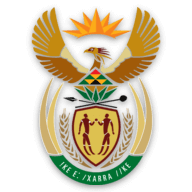Navigating the Digital Frontier: South Africa's Media Evolution
September 19, 2024, 11:06 pm
In the heart of South Africa, a digital revolution is brewing. The winds of change are blowing through the media landscape, and they carry both promise and peril. Deputy Minister Kenny Morolong recently underscored the urgency for media to adapt or risk becoming relics of the past. Traditional newspapers are facing a storm, with closures and dwindling readership threatening their very existence. The message is clear: adapt to the digital era or fade away.
Morolong's address at the Meta for Government Summit in Johannesburg painted a vivid picture of the challenges ahead. The media's role is not just to inform but to hold power accountable. It’s the watchdog of democracy, barking at the gates of government and corporate giants. Yet, as the digital age unfolds, the traditional models of revenue are crumbling. Advertising dollars are fleeing to digital platforms, leaving newspapers gasping for breath.
The Deputy Minister highlighted the importance of long-term self-sustainability strategies. It’s not just about survival; it’s about thriving in a new ecosystem. The emergence of digital content distribution has transformed the landscape. Newspapers must rethink their business models, embracing innovation and creativity. The old ways are like a ship taking on water; without a new course, they will sink.
Morolong's call for collaboration is a lifeline. The Print and Digital Media Transformation and Revitalisation Steering Committee aims to bridge the gap between traditional media and digital platforms. This partnership could be the key to unlocking new opportunities. The government is ready to work with stakeholders to craft legislative frameworks that protect press freedom while fostering innovation.
Digital platforms like Meta are not just tools; they are lifelines. They connect citizens to information, services, and each other. Morolong emphasized their role in empowering communities through educational content and job opportunities. In a world where information is power, these platforms can be the great equalizer. They can transform the way government interacts with its citizens, making it more responsive and inclusive.
However, this digital utopia is not without its shadows. Misinformation looms large, threatening to undermine trust in media and government alike. The Deputy Minister warned of the dangers posed by fake news and disinformation. These are not just buzzwords; they are real threats that can distort reality and sow discord. The government sees this as a serious issue, calling on platforms like Meta to take a stand against the spread of falsehoods.
The conversation about ethical digital tool usage is crucial. Morolong’s emphasis on collaboration is a reminder that everyone has a role to play. Media, government, and tech companies must work together to create a safe digital environment. This is not just about protecting information; it’s about protecting people. Cyberbullying, especially against vulnerable groups, is a growing concern. The digital landscape must be a safe space for all.
As the summit unfolded, the potential of artificial intelligence (AI) emerged as a beacon of hope. AI can enhance communication, making it richer and more engaging. It can help combat misinformation by identifying and flagging false content. The Deputy Minister welcomed Meta's initiatives to employ fact-checkers and develop content moderation systems. This is a step in the right direction, but it requires ongoing commitment and innovation.
The landscape of South African media is shifting. The digital age is not just a challenge; it’s an opportunity. Small businesses and entrepreneurs are harnessing these platforms to reach wider audiences and create jobs. The government recognizes this potential and is committed to fostering an environment where digital engagement thrives.
Morolong’s vision is one of empowerment. He sees a future where digital platforms are not just channels for communication but engines of economic growth. This is a call to action for all stakeholders. Together, they can build a digitally inclusive society that uplifts everyone.
In conclusion, South Africa stands at a crossroads. The media must evolve or risk extinction. The digital era is a double-edged sword, offering both opportunities and challenges. The government, media, and tech companies must unite to navigate this new terrain. The path ahead is fraught with obstacles, but with collaboration and innovation, a brighter future is within reach. The digital frontier awaits, and it’s time to seize the moment.
Morolong's address at the Meta for Government Summit in Johannesburg painted a vivid picture of the challenges ahead. The media's role is not just to inform but to hold power accountable. It’s the watchdog of democracy, barking at the gates of government and corporate giants. Yet, as the digital age unfolds, the traditional models of revenue are crumbling. Advertising dollars are fleeing to digital platforms, leaving newspapers gasping for breath.
The Deputy Minister highlighted the importance of long-term self-sustainability strategies. It’s not just about survival; it’s about thriving in a new ecosystem. The emergence of digital content distribution has transformed the landscape. Newspapers must rethink their business models, embracing innovation and creativity. The old ways are like a ship taking on water; without a new course, they will sink.
Morolong's call for collaboration is a lifeline. The Print and Digital Media Transformation and Revitalisation Steering Committee aims to bridge the gap between traditional media and digital platforms. This partnership could be the key to unlocking new opportunities. The government is ready to work with stakeholders to craft legislative frameworks that protect press freedom while fostering innovation.
Digital platforms like Meta are not just tools; they are lifelines. They connect citizens to information, services, and each other. Morolong emphasized their role in empowering communities through educational content and job opportunities. In a world where information is power, these platforms can be the great equalizer. They can transform the way government interacts with its citizens, making it more responsive and inclusive.
However, this digital utopia is not without its shadows. Misinformation looms large, threatening to undermine trust in media and government alike. The Deputy Minister warned of the dangers posed by fake news and disinformation. These are not just buzzwords; they are real threats that can distort reality and sow discord. The government sees this as a serious issue, calling on platforms like Meta to take a stand against the spread of falsehoods.
The conversation about ethical digital tool usage is crucial. Morolong’s emphasis on collaboration is a reminder that everyone has a role to play. Media, government, and tech companies must work together to create a safe digital environment. This is not just about protecting information; it’s about protecting people. Cyberbullying, especially against vulnerable groups, is a growing concern. The digital landscape must be a safe space for all.
As the summit unfolded, the potential of artificial intelligence (AI) emerged as a beacon of hope. AI can enhance communication, making it richer and more engaging. It can help combat misinformation by identifying and flagging false content. The Deputy Minister welcomed Meta's initiatives to employ fact-checkers and develop content moderation systems. This is a step in the right direction, but it requires ongoing commitment and innovation.
The landscape of South African media is shifting. The digital age is not just a challenge; it’s an opportunity. Small businesses and entrepreneurs are harnessing these platforms to reach wider audiences and create jobs. The government recognizes this potential and is committed to fostering an environment where digital engagement thrives.
Morolong’s vision is one of empowerment. He sees a future where digital platforms are not just channels for communication but engines of economic growth. This is a call to action for all stakeholders. Together, they can build a digitally inclusive society that uplifts everyone.
In conclusion, South Africa stands at a crossroads. The media must evolve or risk extinction. The digital era is a double-edged sword, offering both opportunities and challenges. The government, media, and tech companies must unite to navigate this new terrain. The path ahead is fraught with obstacles, but with collaboration and innovation, a brighter future is within reach. The digital frontier awaits, and it’s time to seize the moment.

